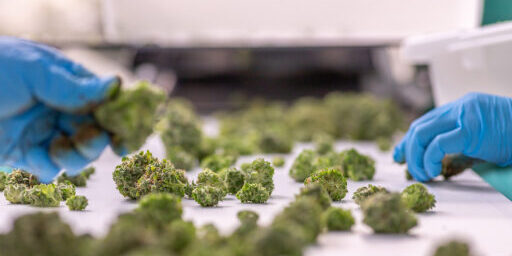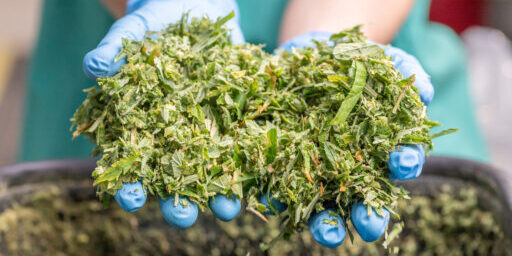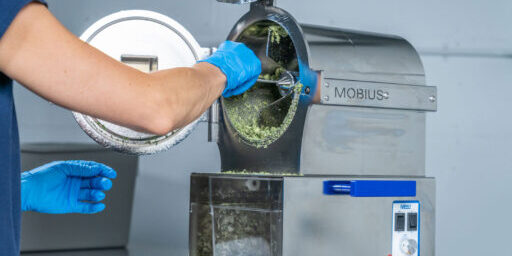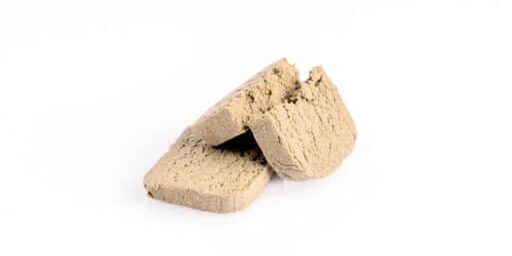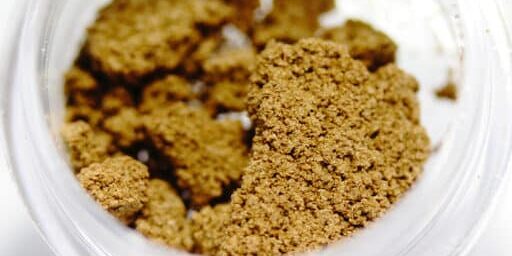The Ultimate Guide to Cannabis Waste Disposal
Cannabis waste disposal has always been an issue of concern for legal commercial cultivators. As the industry evolves, laws and regulations have become more strict and cannabis business owners must determine how to effectively manage their green waste to adhere to guidelines for industry compliance.
Every year, more than 150 tons of waste is generated from the cannabis industry, prompting regulatory bodies to implement new policies for businesses to follow. Today’s growers must ensure they take the appropriate measures to avoid the risk of encountering potential legal or environmental issues. Additionally, by properly and effectively disposing of their green waste, cultivators can save money overall on disposal costs.
Today, we’re exploring the steps modern growers must take to ensure they adhere to regulatory compliance and environmental responsibility standards with cannabis waste disposal.
Understanding Types of Cannabis Waste Materials
At various stages of the cannabis production process, cultivators are often left with different types of waste, each with its own handling and disposal methods. Any material that contains THC or comes in contact with THC is considered cannabis waste. Some of the most common forms of organic waste material produced in the cannabis industry include:
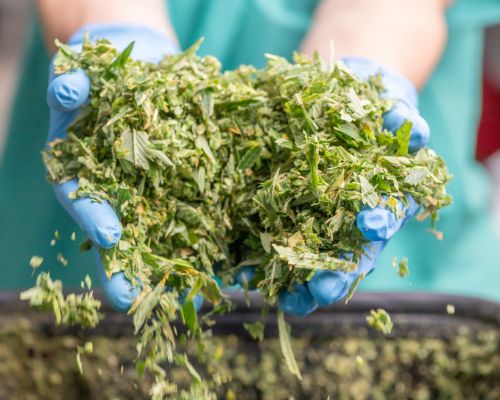
- Plant trimmings: This is composed of plant material left over after processing cannabis, including excess fan and sugar leaves and the plant matter that gets removed during bucking and trimming.
- Unused plant material: Some cannabis cultivation results in the production of excess or unused plant materials, such as stems and stalks.
- Root balls and soil: After a harvest, root balls and soil from the growing medium can accumulate as waste.
- Inorganic material: During the harvest and processing, there are materials that come in contact with cannabis that must be disposed of along with the organic material. This can include things like netting, mesh, and used rosin press bags.
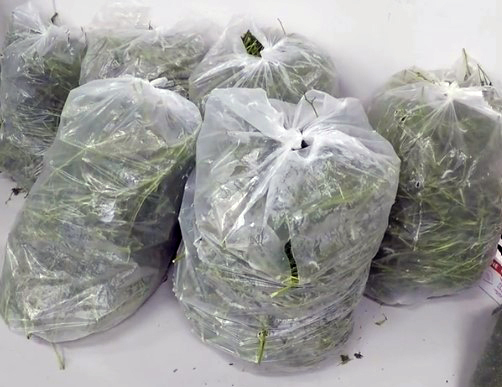
Proper disposal of cannabis waste often requires companies to follow specific regulations and laws to minimize legal risks. Cannabis waste — including leaves, stalks, roots, and inorganic material — is generally considered ‘hazardous waste’, depending upon the laws of your jurisdiction. If the organic cannabis waste has not been combined with any toxic or hazardous materials, it may be considered “organic waste material” and can be composted in many states.
Disposing of each of these different forms of waste requires companies to invest in strategic processes for tracking and documentation, secure waste storage, and transportation. Each region and jurisdiction may have its own specific guidelines on what to do with cannabis waste.
However, every landscape requires companies to take a careful and safe approach to ensure waste is removed, recycled, or transported to its destination safely and properly.
Commercial Cannabis Waste Disposal
For commercial cannabis businesses, proper waste disposal isn’t just an ethical responsibility, and crucial for reputation preservation; it’s also a legal requirement.
While regulatory frameworks surrounding waste disposal vary based on local, state, and federal guidelines, authorities are taking steps to implement new strategies for protecting the environment and public health, as well as preserving the integrity of the cannabis market.
For instance, in the United States, most regulatory guidelines dictate leftover plant material must be made “unusable and unrecognizable”, by grinding and mixing it with other materials before it reaches a landfill or other disposal sites. Generally, this is done by creating a 50/50 ratio of cannabis waste material to non-cannabis waste material.
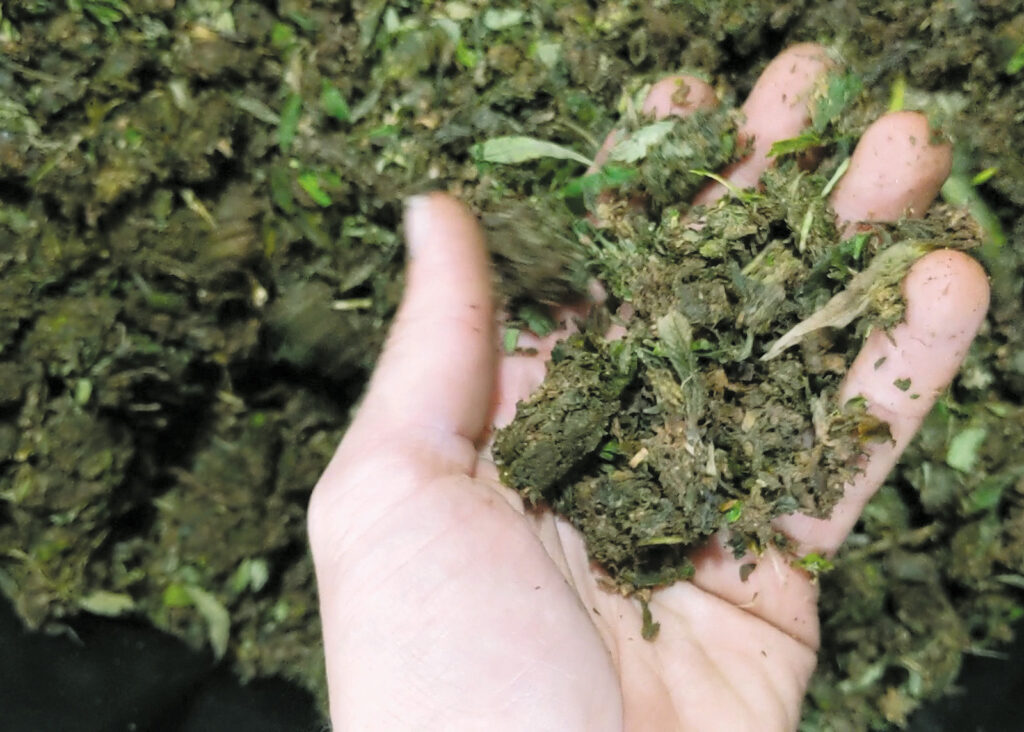
As the cannabis industry evolves, and new regulatory guidelines are set, business leaders will need to ensure they’re staying up-to-date with the compliance rules for waste management. Non-compliance with industry and federal standards can lead to significant consequences for commercial businesses.
Not only do growers risk significant fines from regulatory authorities, but they could also suffer damage to their reputation, and potentially have their license for growing and cultivation revoked.
Four Ways to Dispose
Various factors may influence the disposal method you choose for your cannabis business, such as local regulations and the types of products you produce. Some of the most common options available to business leaders today include:
Permitted Landfill Waste
Landfills are some of the most common and readily available waste disposal facilities. Many regions permit cannabis waste to be disposed of in permitted landfills, provided that the waste material is deemed “unusable” and will not have a negative impact on the environment.
Companies will need to ensure they adhere to the guidelines implemented for this method of disposal, but it can be an easier and more convenient option for large-scale businesses. Unfortunately, landfill disposal may not align with the sustainability goals of your business.
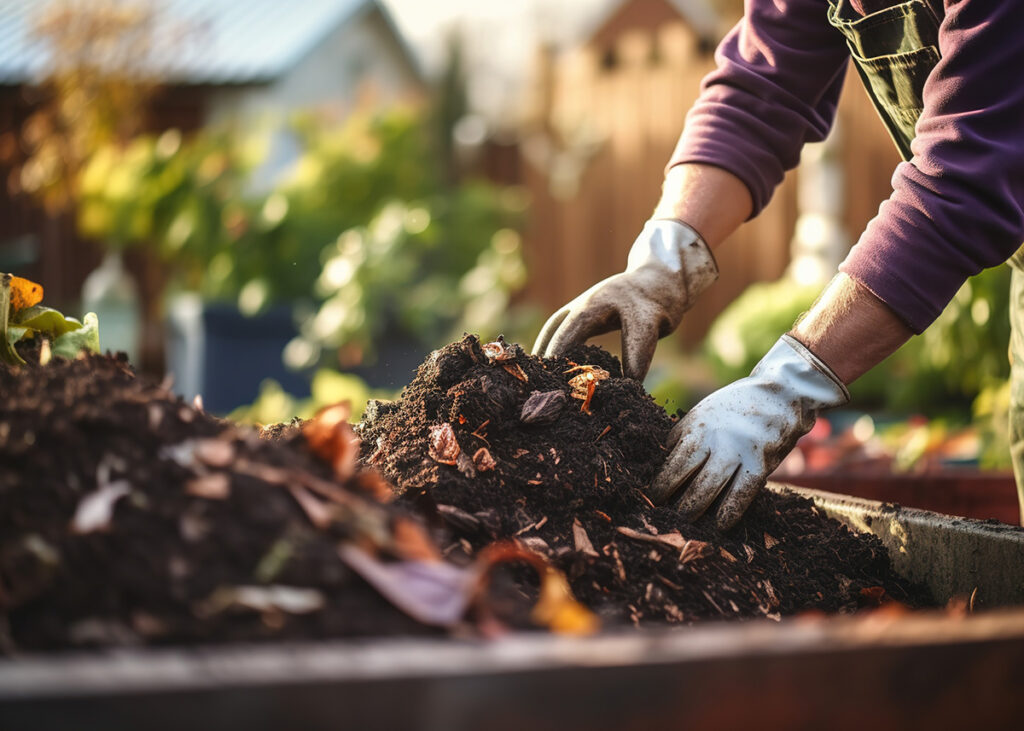
Cannabis Composting
For companies looking to limit their cannabis waste footprint, composting offers a fantastic eco-friendly strategy. In some states, composting is allowed on-site. Growers can recycle their byproducts to grow more plants, promoting sustainability and creating nutrient-rich soil.
For other jurisdictions, chemical-free organic waste material (still properly rendered ‘useless’ by mixing with other compostable non-cannabis material) may be transferred to licensed composting facilities. Some regions also have programs available which help to compost the waste generated from cannabis cultivation.
To invest in this strategy on-site, businesses will need a composting system that allows for the segregation of organic waste, as well as adequate composting space. Hiring additional team members to manage the composting process may be necessary.
In-Vessel Digestion
In this disposal method, companies can use digester systems to break down cannabis waste, making it unrecognizable and unusable. Similar to composting, this only works for organic cannabis byproducts, such as leftover plant parts and soil, and may not include inorganic materials, or anything contaminated with solvents or other chemicals. The digester uses biological elements like bacteria to eliminate cannabis waste, and the remaining substance can sometimes be used as compost.
However, as with the landfill disposal option, companies will need to ensure they’re working with a licensed in-vessel digestion center unless they have their own solution on-premises.
Incineration
Incineration is perhaps the fastest and most cost-effective way to dispose of waste material. However, it can be a more complex process than it seems. Most companies will be required to work with a licensed incineration company or purchase a specialized machine.
Additionally, incineration can raise environmental concerns by releasing air pollutants. Incineration also means that the waste left behind is unusable and cannot be repurposed for composting and other uses.
Ways to Minimize Waste
Since the best practices of cannabis waste disposal can be difficult to follow, it’s often beneficial for companies to find ways of minimizing waste from the outset. Reducing cannabis waste can start with precise cultivation practices, which help to optimize growth and yield, reducing trimmings and leftover byproduct volume.
Effective strategies also help prevent the overproduction and waste of cannabis products. Additionally, leveraging intelligent and automated solutions for bucking and trimming cannabis plants can help minimize green waste output.
Mobius’ MBX Bucker is the ideal solution for helping your business manage its cannabis waste material. The integrated stem chipper cuts the stems into smaller pieces as it bucks, drastically reducing the size and volume of waste material by 25X. Additionally, for cannabis plant material intended for composting, the inclusion of large sections of stems will slow and interfere with the composting process. Smaller stem pieces make for more effective composting.
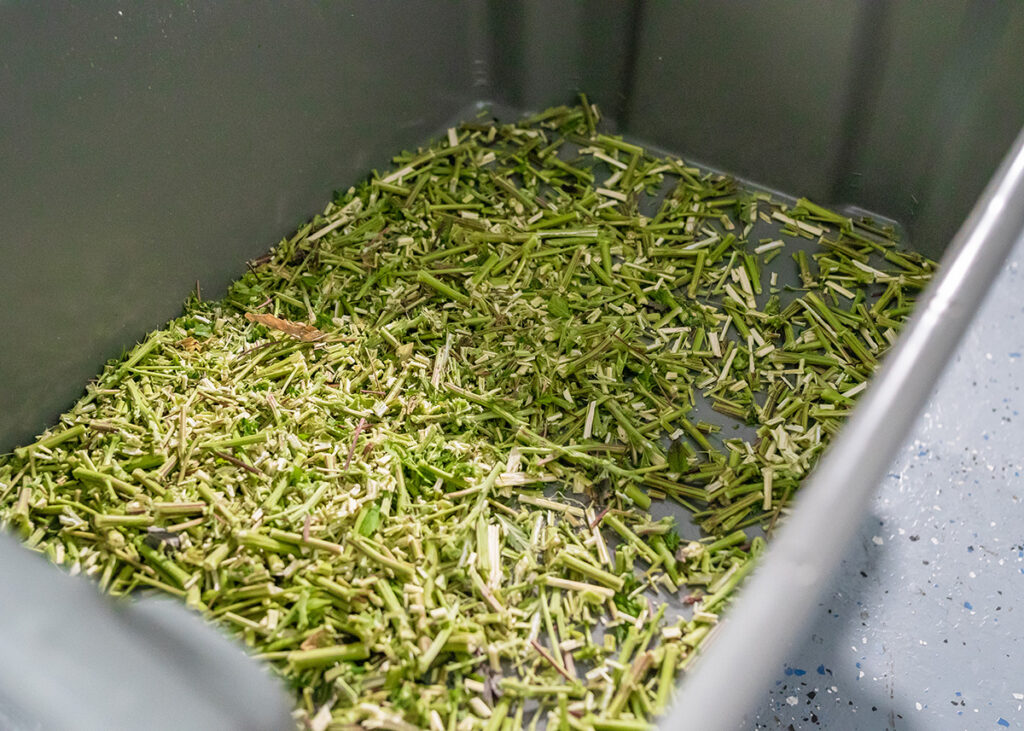
Businesses can also look into implementing effective inventory management and quality control measures. Monitoring inventory levels and demand prevents overstocking of products and reduces the risk of product expiration, while quality control reduces waste from products that don’t meet quality standards.
Moreover, exceptional source segregation methods can also play a role in reducing waste. Separating different types of cannabis waste at the point of generation facilitates better disposal and recycling methods. Businesses can even create designated waste collection areas for different types of waste, such as expired products, packaging materials, and organic plant materials.
By implementing segregation and waste reduction strategies, companies can significantly reduce the costs incurred with running and managing their business while improving their regulatory compliance. What’s more, these practices lead to greater environmental sustainability, enhancing the image and reputation of their brand.
Documentation and Record-keeping
Though the methods companies use to dispose of waste can vary, proper documentation and record-keeping are often essential to compliance and success. Documenting the waste disposal process provides companies with a clear and transparent account of managing waste.
Recording each step, from waste generation to final disposal, provides an explicit chain of custody for regulatory bodies to assess. Maintaining records of waste types, quantities, and methods can help companies track any inconsistencies in their disposal practices and pinpoint opportunities to improve the quality and efficiency of the process.
Furthermore, all of these documents assist with audits and inspections by regulatory authorities, helping to reduce the risk of fines and legal issues.
Investing in Proper Disposal
Implementing proper disposal methods of cannabis waste is crucial for various reasons. Following best practices ensures compliance with industry standards. Additionally, it helps to reduce your impact on the environment as a cannabis company, enabling you to earn the trust of your customers and shareholders. Excellent waste disposal starts with minimizing waste using the right tools. Contact Mobius today to learn how our solutions can help you manage and reduce waste in your cannabis business.
